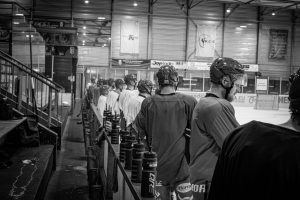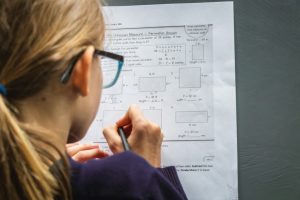Breaking Free from Educational Constraints
Education is often referred to as the key to success. It opens doors, creates opportunities, and empowers individuals to reach their full potential. However, despite its immense value, education can also be a source of constraint. We are often told to follow a certain path, achieve certain grades, and conform to certain societal norms. But what if we challenged these constraints and broke free from the traditional view of education? In this article, we will explore how breaking free from educational constraints can lead to personal growth, creativity, and fulfillment in both academic and non-academic pursuits.
The Traditional View of Education
The traditional view of education focuses on academic achievement and conformity. We are encouraged to study hard, excel in exams, and pursue subjects that are deemed “valuable” or “practical” in the eyes of society. This rigid view of education not only limits our academic choices but also narrows our perspective on what constitutes success. It places great emphasis on grades and degrees, leaving little room for personal growth, creativity, and critical thinking.
The Pressure to Conform
One of the biggest constraints of traditional education is the pressure to conform. We are expected to fit into a certain mold, follow a particular curriculum, and achieve certain grades. This can lead to a lack of individuality and a fear of deviating from the norm. As a result, students may feel discouraged from exploring their own interests and passions, ultimately hindering their personal growth and self-discovery.
The Limitations of Academia
Another constraint of traditional education is its limited focus on academic subjects. While subjects such as mathematics, science, and literature are undoubtedly important, they do not encompass the entirety of human knowledge and experience. The traditional education system often neglects subjects such as art, music, philosophy, and entrepreneurship, which are equally valuable in their own right. By breaking free from educational constraints, individuals can explore a diverse range of subjects and expand their horizons beyond the classroom.
The Benefits of Breaking Free
Breaking free from educational constraints offers a multitude of benefits for individuals. It allows them to discover and pursue their unique passions and interests, leading to personal fulfillment and happiness. It also encourages creativity, critical thinking, and a broader perspective on what constitutes success.
Exploring Personal Interests
When individuals break free from educational constraints, they are no longer confined to a predetermined path or set of subjects. This opens up opportunities for them to explore their personal interests, whether it be art, music, technology, or entrepreneurship. By pursuing their passions, individuals are more likely to feel motivated, engaged, and satisfied with their education.
Encouraging Creativity and Critical Thinking
Breaking free from educational constraints also promotes creativity and critical thinking. By not conforming to a predefined set of rules and expectations, individuals are encouraged to think outside the box and find new and innovative ways to approach problems. This not only benefits their academic pursuits but also prepares them for real-world challenges where there may not be a clear-cut solution.
Redefining Success
Perhaps the most significant benefit of breaking free from educational constraints is the ability to redefine success. Instead of measuring success solely based on grades and degrees, individuals can now focus on personal growth, fulfillment, and impact. By pursuing their passions and interests, individuals can find a sense of purpose and create a meaningful impact in their community or society as a whole.
In Conclusion
Educational constraints may seem like a necessary part of the traditional education system, but they can limit our personal growth, creativity, and fulfillment. By breaking free from these constraints, individuals can explore their personal interests, think critically and creatively, and redefine success on their terms. So don’t be afraid to challenge the traditional view of education and find your own path towards success.










